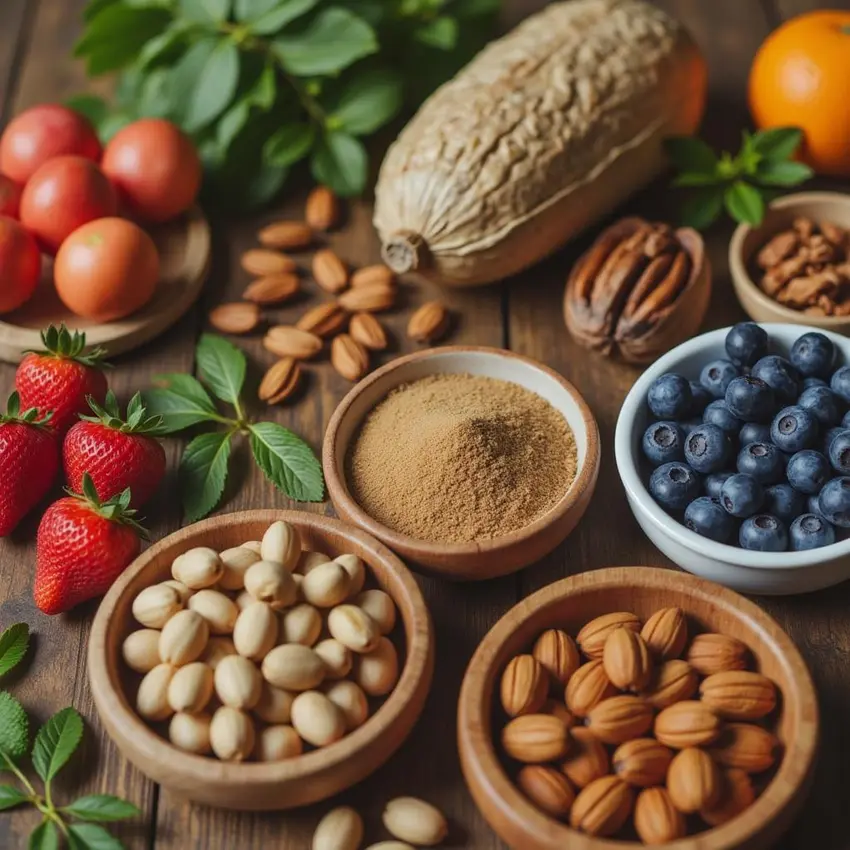Foods That Improve Sperm Quality
Understanding Sperm Quality
Sperm quality, often defined by its count, motility, and morphology, plays a crucial role in male fertility. Poor sperm quality can lead to difficulties in conception, impacting not only individuals trying to conceive but also their partners. Fortunately, recent studies suggest that nutrition can significantly influence sperm health. Here’s a look at some top foods that can improve sperm quality and ultimately enhance reproductive health.
1. Fruits and Vegetables: Nature’s Powerhouses
Fruits and vegetables are not just for general health; they play a vital role in enhancing sperm quality. Rich in antioxidants, vitamins, and minerals, these foods help combat oxidative stress that can damage sperm.
- Vitamin C-rich foods: Incorporate citrus fruits like oranges, lemons, and strawberries into your diet. Vitamin C can improve sperm motility, leading to better chances of fertilization.
- Dark leafy greens: Spinach and kale are excellent sources of folate, a B vitamin that has been linked to better sperm health.
- Berries: Blueberries and blackberries offer high levels of antioxidants, which are crucial for protecting sperm from oxidative damage.
2. Nuts and Seeds: Small but Mighty
Nuts and seeds are packed with essential fatty acids and nutrients that are key to healthy sperm production. Omega-3 and zinc play significant roles in hormone production and cell health.
- Walnuts: Walnuts contain high levels of omega-3 fatty acids, which have been shown to improve sperm vitality and motility.
- Almonds: Rich in vitamin E, almonds can help protect sperm from free radical damage while also promoting hormone production.
- Pumpkin seeds: Loaded with zinc, these seeds support testosterone levels, which are important for sperm production.
3. Fish: A Source of Omega-3 Fatty Acids
Fatty fish, such as salmon, mackerel, and sardines, are not only delicious but also incredibly beneficial for sperm health. These fish are rich in omega-3 fatty acids, which are known to improve blood flow and promote healthy hormone levels.
In addition to omega-3s, fatty fish provide vitamin D, an essential nutrient that has been linked to improved sperm motility. Aim to include fish in your diet at least twice a week to reap these benefits.
4. Whole Grains: The Energy Source
Whole grains such as brown rice, quinoa, and whole wheat bread provide essential nutrients that can help regulate blood sugar levels and improve hormone balance. They are also rich in fiber, which is crucial for overall health and well-being.
Whole grains can help reduce the risk of obesity, a factor that negatively affects sperm quality. With a balanced intake of whole grains, you can improve your overall health and, by extension, your reproductive health.
5. Lean Proteins: Building Blocks of Health
Focusing on lean proteins such as chicken, turkey, and legumes is vital for maintaining healthy sperm production. Protein is essential for building and repairing tissues throughout the body, including sperm.
Lentils and chickpeas are excellent plant-based protein sources, providing both protein and fiber without saturated fats that can negatively impact hormone levels. Ensure that you include a source of lean protein in every meal to support optimal reproductive health.
6. Healthy Fats: Omega-3 and Monounsaturated Fats
Incorporating healthy fats into your diet can significantly improve sperm quality. Monounsaturated fats found in olive oil and avocados can aid in hormone production, and omega-3s, as mentioned before, are essential for enhancing sperm motility.
Additionally, avoid trans fats and excessive saturated fats found in processed foods as they can hinder sperm production and overall fertility.
7. Dark Chocolate: A Sweet Treat for Sperm
Surprisingly, dark chocolate can also be beneficial for sperm health. Rich in antioxidants, it can improve blood flow and enhance overall well-being. The flavonoids in dark chocolate contribute to better sperm quality by improving motility and count.
Make sure to choose dark chocolate with at least 70% cocoa content to maximize health benefits. Moderation is key; a small amount can go a long way!
Making Changes to Your Diet
While individual foods can have remarkable effects, a balanced diet is essential. By focusing on a diet rich in fruits, vegetables, healthy fats, and lean proteins, you can significantly improve your sperm quality. Remember, lifestyle changes take time; however, the rewards of better reproductive health are worth it.
Additionally, it’s advisable to limit alcohol consumption and avoid smoking, as these habits can detrimentally affect sperm quality.

